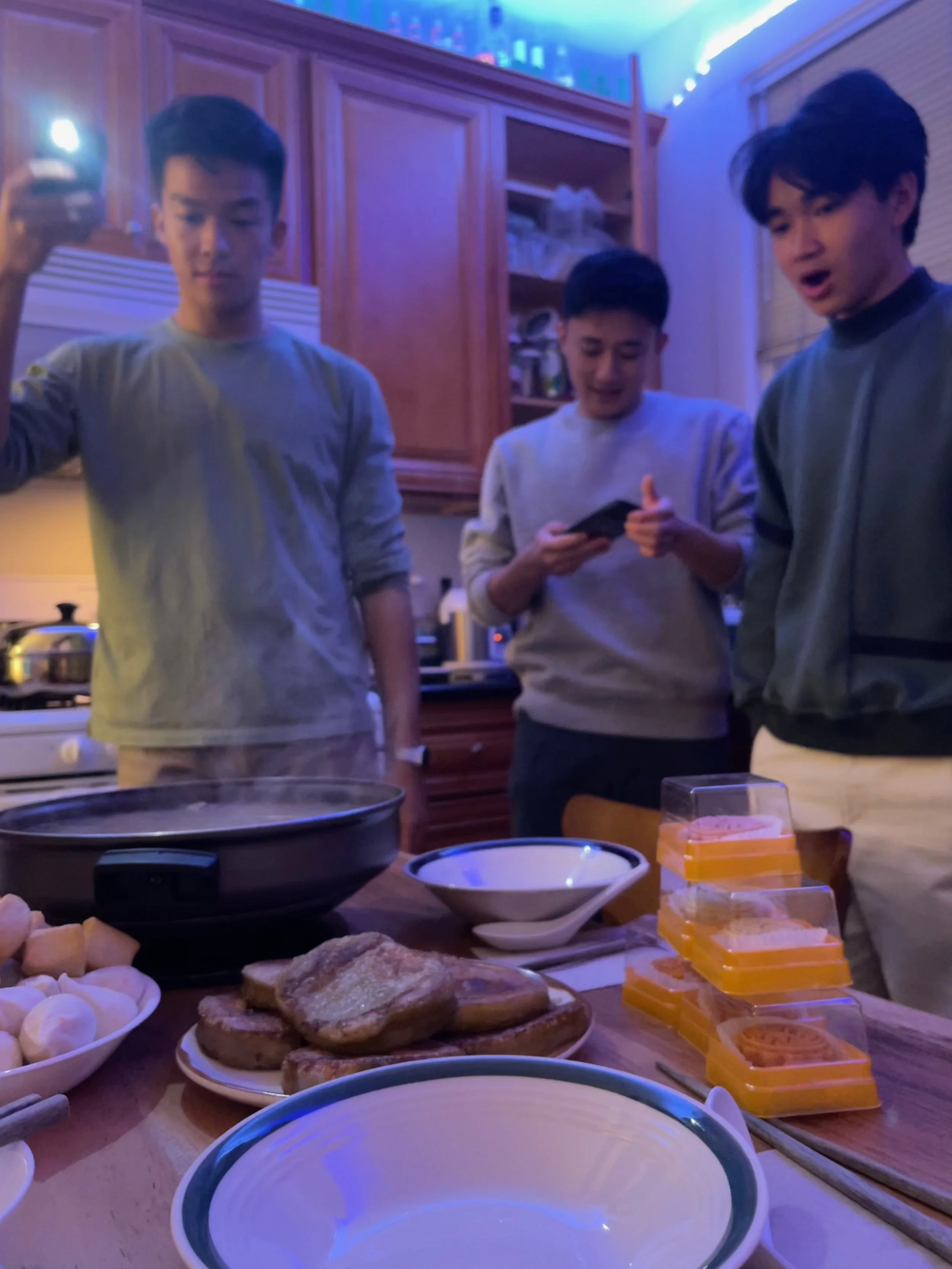
a pink séance
by Min Kee Kim | Published Jan 17, 2023 | Edited Jul 26, 2023
Dedicated to Justin, Kimberly, and You
On December 31st, 2021, This American Life published a podcast titled “The Ghost in the Machine.” In it, four separate stories are told about individuals looking for lost loved ones in the devices that surround them; tape recordings, cell phones, artificial intelligence models beautifully illustrate the persistence of life within the mechanical and digital instruments that document our reality.
To preface, “The Ghost” is a trace of the people that once were “permanent” facets of our life. “The Machine” houses the ghost, reflecting fragments and recollections.
In a world pervaded by digital records and catalogs, we are often surrounded by remnants of people that we’ve lost to the currents of time. Still, like ocean to sand, the waves of circumstance will wash us away from shore; pushing, then pulling us away from the people we love. I’ve often wondered how I could ever possibly come head to head with such unforgiving realities while constantly enclosed by reminders of what once was.
Do old photos and recordings serve only as desolate mnemonics, slowly painting over memories with hues of longing and lies?
Vauhini Vara tells her story — one that has stuck with me for months after my initial listen — on the podcast: during her time in college, she was faced with the tragic reality that materialized as her sister passed away. She pushed through college, and following her graduation, she would become a successfully published writer. However, this traumatic experience was one she purposefully avoided writing about, as the details of her own journey with grief were knotted in complex emotional understandings of death and grief that could she could not properly transcribe into language. When she encountered an early version of OpenAI’s GPT-3 artificial intelligence model — which has now just recently taken the internet by storm — she was inspired to tackle the daunting task of writing about her experience with grief. She turned to GPT-3 in hopes that it would generate paragraphs that would inspire something within her. Of course the model — being but a model of intelligence — stumbled with its suggestions, created false memories, and wrote out of place passages. Yet, some of its creations were surprisingly emotional and riveting.
I encourage you to read the model’s generations yourself: https://www.thebeliever.net/ghosts/.
A machine mourning — or at least pretending to mourn — the loss of a sister it never knew, carries a heavy irony. “The Machine” never knew “The Ghost” it now unknowingly houses. “The Machine” doesn’t reminisce nor feel nostalgia. It is but a platform. A theatrical stage of some sorts. And yet, when you read these passages, it feels as if “The Machine” had actually known Vara’s sister; it’s as if she continues to live through the machine’s false memories and algorithmically generated paragraphs. However, there exists, a potentially illusory, extrapolation of life within it’s words. We must remind ourselves that these sentiments are ours, merely projected onto the constructions generated by these trained neural networks. But it begs the question: what does live on — within us, within these machines — after the people we love are gone?
☆☆☆
Every day, for the rest of my life, I will mourn the loss of one of my best friends to the currents of life, death, time, but mostly, leukemia. Unfortunately, in a fit of confused adolescent frustration, I deleted almost every keepsake of his remembrance. All of the photos and chat logs we shared now no longer exist. Forever. In a sense, I’ve had to mourn his death twice. Once for the departure of his physical body. And the second for his digital. I had mistakenly tried my best — and succeeded — in exorcising “The Ghost.”
I now look for him in every machine I come across. At first I called it grief. But now, I think it’s better labeled as love. Sometimes, I see him in the speakers of a dispensary blasting old Drake songs too loudly. Other times, he hides in the pink camera that my mom gifted me as a child. But more often than not, he makes me wonder if people are machines too, because I see glimpses of him in everyone I meet.
I have, since then, lost many more friends (mostly) to the currents of time and circumstance (some to bitter arguments and insignificant differences). This is a whole different kind of grief… no, love, that I’ve began to experience: the love that is losing people that are still very much alive.
I’ve had to learn that not all ghosts are dead. Some ghosts slowly drift away. Others intentionally avoid making eye contact with you in a mostly empty coffee shop. But more often then not, they’ll still wear the sweater you got them last Christmas. And you’ll still have the birthday card they wrote that made you cry.
my roommates celebrating chinese new year
Amidst all of this grief, I’ve happily come to realize that I’ve only been able to come to these realizations and understandings through the support of close friends - especially my roommates. Knowing that someone’s place in your life is not as permanent as you think doesn’t make the experience of their love any less meaningful. If anything, it makes it even more so. The ghosts that once haunted my memories now serve as a reminder of this very thing: a love that persists after death. A love that transcends itself. A love that pushes me to do everything in my power to immortalize my family and friends into the machines that I’ll use until I, too, become someone else’s ghost.
One of the false conclusions I had struggled with during my personal journey in understanding these truths — about love and loss — was a destructive one. It becomes easy to push people away in fear of being haunted by a life that echos self indulgent mendacities of limerence. A life of isolation, I had decided, would be more heartbreaking than one filled with apparitions. I promised myself I would try my best to live a life lead by love, mistakes, and joy in spite of this fear. Choosing to surround yourself with love, to embrace it wholly, in spite of the very possible reality that it will fade is the only courageous act we are left with. This is a love letter to “The Ghost” — to my Ghost — and the many machines that it calls home.
